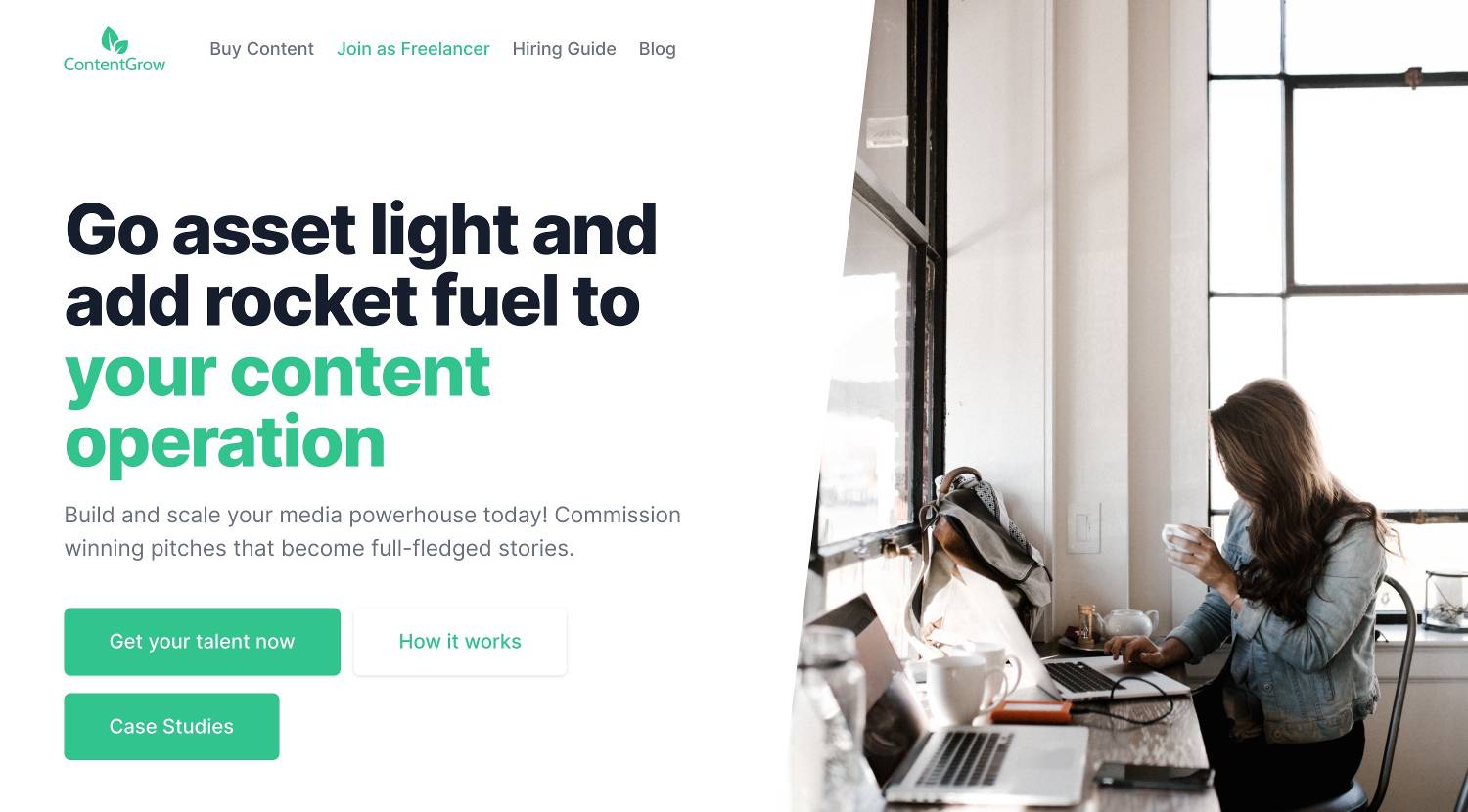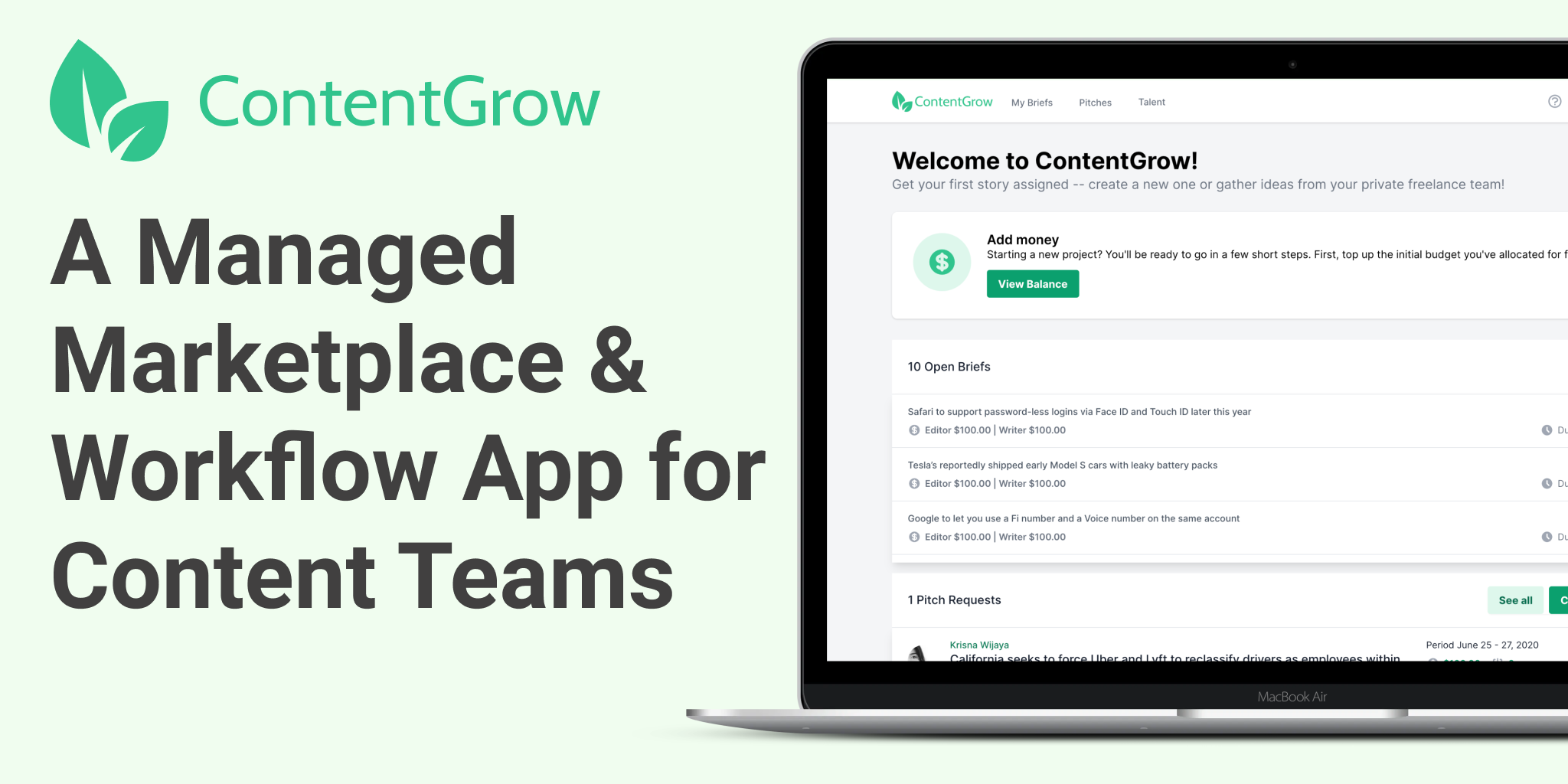Elevation Marketing's Scott Miraglia on scaling agencies (Q&A)
President of Elevation Marketing Scott Miraglia pulls back the curtain on how some agencies are able to become bulletproof, while others go bust.

Scaling a marketing agency is not easy. Before even deciding to ramp up hiring efforts, there are many things to take care of; from the number of clients you're working with, to the maturity of internal processes, to service superiority.
For Phoenix-based Elevation Marketing, internal staff play a vital role in keeping a client for the long haul. Based on the firm's research, clients entrust their business to agencies based on creative pitches and a team's overall likability.
Granted both attributes are highly subjective, but Elevation's president Scott Miraglia has taken the lesson to heart in a bid to give his firm an edge over its competitors.
Scott has been developing a playbook for the past 25 years. His aim is to rescue marketing agencies from the all-too-common pre-bankruptcy status, and return them to profitability.
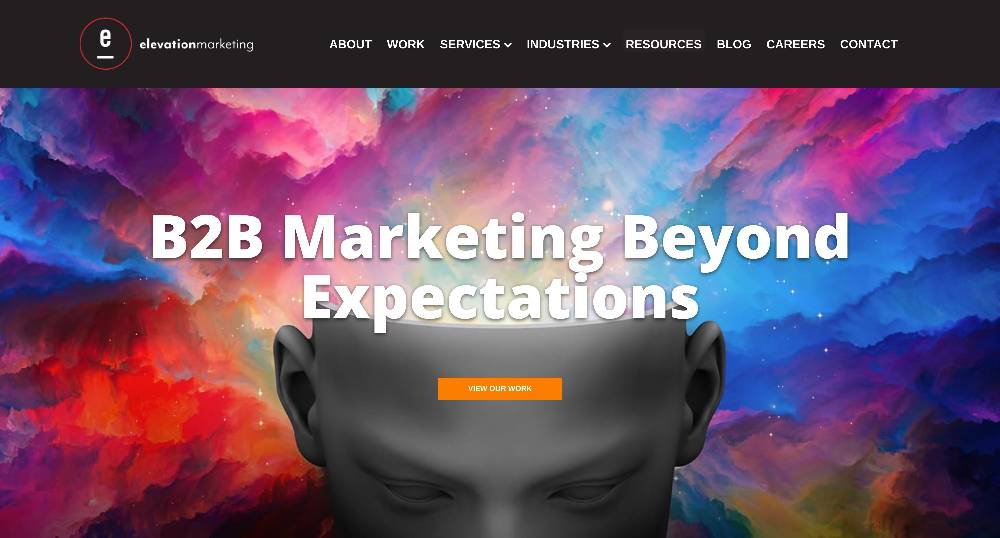
Elevation is a full-service B2B marketing agency. It currently serves a variety of medium and large brands, including famous names like Amazon Web Services, Chevron, Red Hat, and others.
According to Scott, 60% of Elevation's clients are enterprises that report at least US$1 billion in annual revenue. Under his leadership, the agency has landed on Inc’s 5,000 top fastest-growing companies four times in the past decade.
Today, ContentGrip speaks with Scott to learn more about his playbook on building and scaling marketing agencies.
Can you share what Elevation Marketing looked like back in 2012? What have been the most significant changes since then?
Scott: We acquired the agency in May of 2012 and soon discovered that its two largest clients were either leaving the agency or scaling back considerably. It meant a reduction in revenue of around 40% and forced us to make some tough decisions at the time.
First, we rebranded the agency and figured out our brand and story. We walked our own agency through the steps we engage our clients in. I find very few agencies do their own customer and market research, surveys, etc.
As part of that evolution, we settled on five values that we would build the agency on: People, Integrity, Collaboration, Results, and Evolution. In other words, we entirely rebuilt our culture.
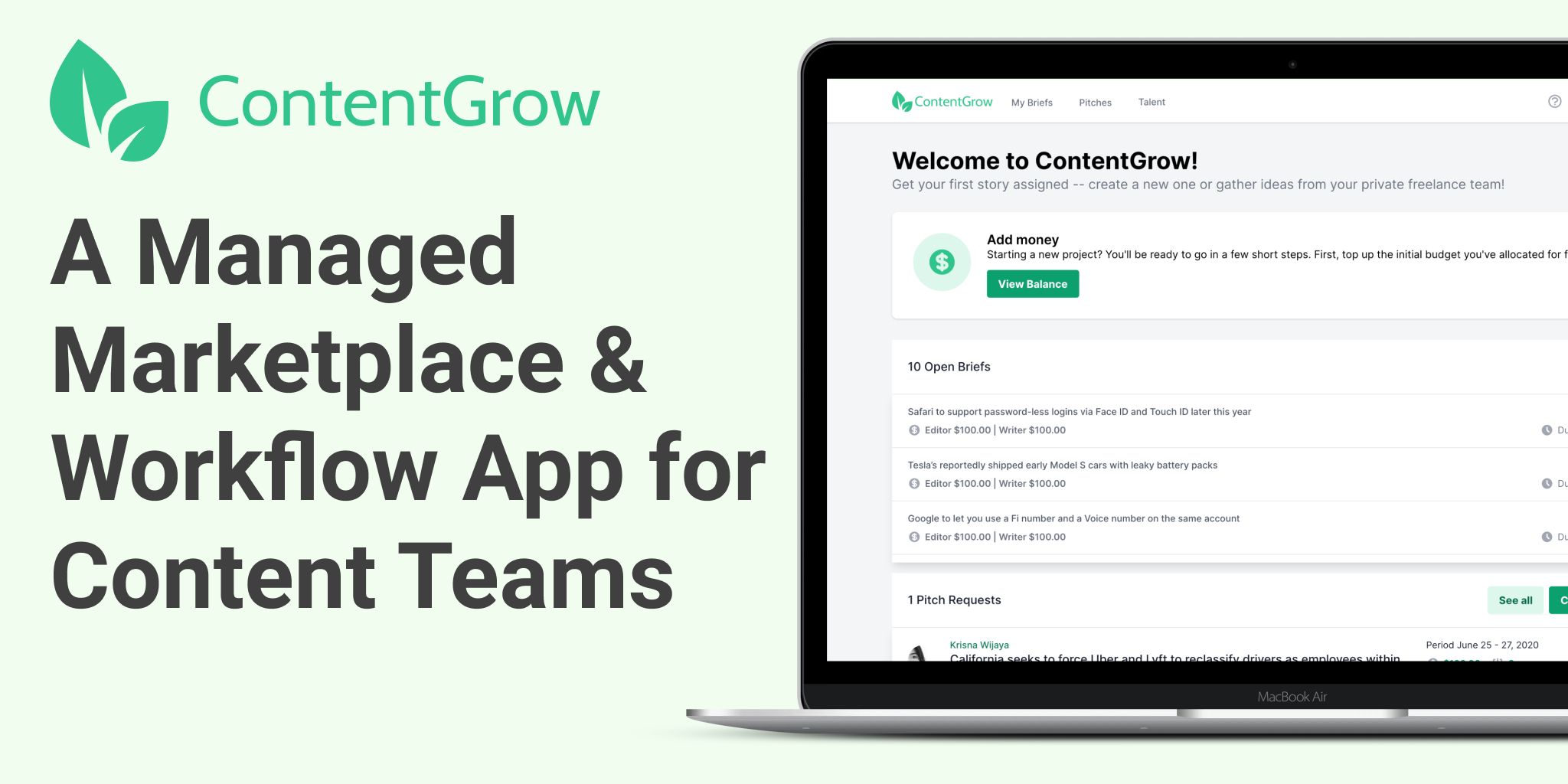
On the business front, we used to have a traditional selling model, having a business development group cold call, building relationships, and then hopefully winning new clients. We were advising our clients to shift from that outdated B2B model and move to a digital construct, building the top and middle parts of the funnel through digital efforts.
We decided to follow our own advice. We scraped our cold calling group, invested in a robust website, built a huge amount of thought leadership and other content, and integrated it into a robust inbound lead generation effort. We now make no cold calls and receive 20-30 organic leads a month; at least 20% are from billion-dollar companies.
In terms of operations, in 2012, we had a huge traditional PR department. That has now become an integrated function for clients and serves content, social, and PR functions. Our digital team was small and now is ten times the size it was in 2012.
In the past, we stayed away from media buying, viewing it as a B2B commodity, but with the shift to digital, controlling media and the strategic implementation of that media is core to driving client results. We have built that team from scratch, with all the relative technologies.

Can you share some of your learnings on how to scale an agency business? For example, is there a way to grow the company aggressively without hiring too many full-timers?
Scott: First, let's define a couple of key financial concepts. Revenue means total billings inclusive of all costs of goods, such as paid media, freelancers, partners, and other vendors' services that you either mark up or pass through the agency.
In the agency world, AGI is an acronym for agency gross income; it's the revenue you create minus the cost of goods mentioned above. AGI is what agencies use to measure agency financial returns against.
I have scaled three or four agencies, one from my bedroom to seven national offices and others from a handful of employees to over a hundred. I have also failed a few times.
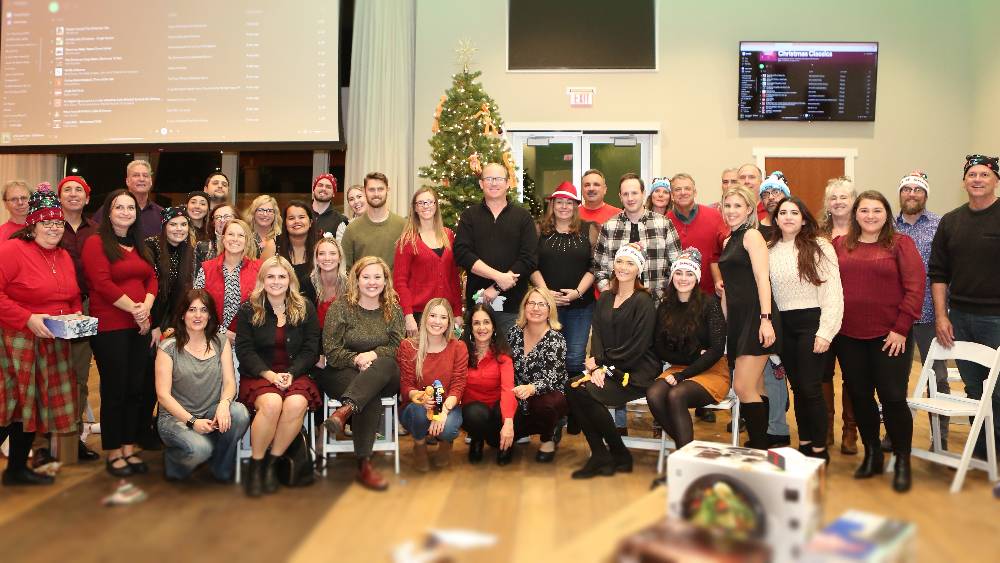
Here are some observations from growing agencies. Most agencies don’t put a premium on new business development. They rely on word of mouth to grow their business. When you are a small agency, you risk becoming too reliant on one or two clients.
As you become larger, you need a funnel to continue growing and replacing clients who leave. I believe you should put 15% of AGI back into new business efforts, which, if managed well, should help the agency grow at a 30% plus clip a year until you reach around 100 employees. At that point, the law of large numbers catches up with you.
Suppose you invest 15% into a new business. You keep your client concentration mix to one client providing no more than 10% of your revenue. In that case, you become bulletproof at US$5 million in AGI. That’s around 35 employees. A good ratio to use is six to seven employees per US$1 million in AGI.
If you are working with larger, billion-dollar clients, the ratio considered optimal by most successful small to midsize agencies is 80% internal revenue and 20% external revenue (freelancers) executed by partners or vendors. Big clients expect agencies to understand their brands, strategies, and execution preferences and utilize that intuitional knowledge to deliver quality programs and assets.
If an agency is focused on smaller companies as clients, you can outsource maybe 40% and still be successful. Smaller businesses tend to be more tactical in nature and are not fully tying a brand story and messaging pillars into their marketing. In fact, most of their marketing is tactical, so utilizing a big freelance base can help you scale and create margin to reinvest.

What are the key ways you try to reach clients? What channels do you believe in most for an agency and why?
Scott: Company-owned media is the best way to reach clients. It took us five years and millions of investment dollars, but we practice what we preach. Our website is deep with content, including thought leadership articles, case studies, white papers, and other content that drives engagement.
Blogs, social, and PR don’t directly lead to conversion in the agency space and, in fact, have a limited effect on “convertible” traffic. However, those tactics play out more mid-funnel as senior executives evaluate our agency against others. This is especially true of social and PR, which from our data, become more validation tools for mid to lower funnel than the top of funnel contributors.
We started playing around with paid media earlier this year and have had some initial success after seeing limited results in the past. The cost per lead that we are looking for as an agency is around US$1,000. This goes for both organic and paid efforts, so you have to carefully calibrate your paid campaigns to avoid getting the types of clients that are not great fits.
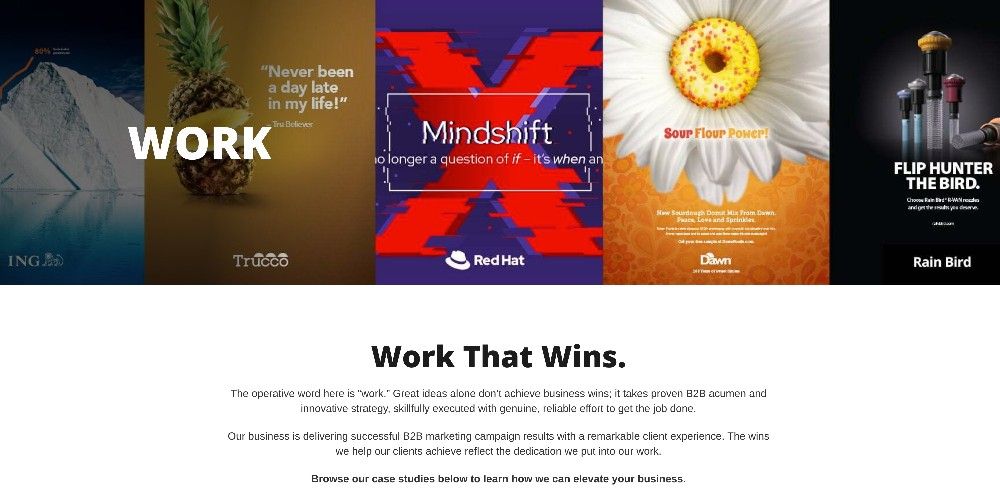
There is one interesting piece of data that shocked us. If you go back six years ago, after our first discussion with a potential client, 75% to 80% of the time, they requested a capabilities presentation.
Because of the depth of our website, we now do a capabilities presentation less than 10% of the time. In fact, in multiple agency inquiries where a company is vetting a list of six or more agencies trying to get down to three agencies to compete for their business, we make the cut more than 95% of the time.
Our close rate after we pitch has doubled. Weekly we hear clients say, “We don’t need you to tell us about Elevation. We have been on your website, and we know you have the experience to meet our needs. Let’s talk about our problems.”
Looking through the data, we see a lot of companies hit 15 to 25 pages on our website. A few days later, they reach out to us.
Here is one other fun fact. If you take all our sales and marketing efforts and divide them by the amount of clients we add to our roles each year, our average cost of client acquisition is between US$50,000 and US$75,000 per client. That means the long-term value of the client is important. How well the agency serves and keeps that client becomes important to the agency's long-term success and its margins.

Do you have tips for increasing client retention? Is it all about hitting campaign KPIs?
Scott: Hitting KPIs is important, but it starts before that. As an agency, we need to select the right clients to work with. Our new business team starts with 20 to 30 organic leads and another ten to 20 paid and outbound leads. It’s their role to narrow in on the companies we want to have conversations with, then vet the companies we think are a match.
We take a pass on a lot of big and small clients that don’t fit our profile. Next, we must help companies define their KPIs. Some companies have no idea what to expect or how to measure success. Others have unrealistic expectations around results and timelines.

Helping companies define and then make sure they have the technology to measure results is part of what we help them with. In the B2B space, you would be shocked at how many companies can’t “close the loop on their results.” They may be able to track leads, but what happens after sales takes over becomes problematic to track things like lifetime value, etc.
Clients want an agency to bring them ideas, not be order takers. They want an agency that understands their business and a team that knows their products, services, and brands. They also want an agency that is easy to work with that delivers on time. And they want quality thinking and execution.
Can you share any failure lessons that other agency pros can learn from?
Scott: I have failed many times and in big ways. I have been a part of two agencies that were forced to sell or close, both of which hurt me deeply. Both agencies suffered the same issues, and I have seen this happen in many other agencies and small companies I consulted.
In small, growing companies, process and accountability typically get tossed out the door. Flexibility and employee empowerment drive growth. In both my cases, employees worked outside the lines of what little process we had, and they were not transparent about the results of the projects they were involved in.
Those projects had huge implications for the agencies' success, and their ultimate failure severely wounded the agencies.

Good leaders are not necessarily great managers. In growing agencies, finding good managers who can develop processes and manage staff is very, very important. When details get missed inside an agency, small issues can quickly become large issues and cripple an agency and even hurt clients and their businesses.
Don't expand too quickly unless you have the right managers and the right level of process to manage that business. In an agency, look at non-billable managers with just as much reverence as you look at billable folks inside your agency.
Every position counts. Agencies are laptops, people, and ideas, and those external and internal everyday interactions are critical to the agency's success.
At the end of the day, lack of accountability, process, management, all the missed details, and the results that came forth fell on me. I have learned that as an agency president, every failure is yours and yours alone, and the successes belong to your staff.
Knowing what you know now, if you were starting over today, what would you do differently?
Scott: First, I would have focused on people, both employees and clients, and culture more than I did prior to Elevation. We are in the people and ideas business. How I interact with the agency's and clients' employees models expectations and impacts culture in a huge way. I wish I were better at that.
On a more esoteric note, most agencies are bootstrapped when they start. In all the agencies I've worked at or started prior to Elevation, they began with a dream and an empty bank account. When we purchased Elevation Marketing, we set up the agency's capital structure to withstand the ups and downs of agency life and the macroeconomic forces that influence an agency's performance.

Looking back, I wish I had fully understood how access to capital and managing an agency inside certain financial ratios could have made life a lot easier during tough times.
That discipline allowed Elevation to survive the pandemic and flourish coming out of the pandemic. I wish I had raised more capital in all the ventures I was involved in prior to Elevation.
I have seen economic collapse, terrorist attacks, pandemics, labor shortages, client bankruptcies, digital transformation, and so many other outside pressures that test the resiliency of agencies. When those events happen, having an agency in great financial health allows managers to make the right long-term decisions for the employees and clients.

Lastly, what makes Elevation Marketing unique compared to other full-service B2B marketing agencies?
Scott: That’s the age-old question, especially in the agency space.
When we rebranded six-plus years ago, our research showed customers bought agency services based on the creativity and likability of the staff they interacted with. That research mimics B2C agency research. It’s hard to create an agency based on both likability and creativity because those attributes are highly subjective. We also found that there are 10,000 agencies that build their brands on those two attributes.
We identified two sub-themes creeping into the research that we thought would have legs moving into the future. The first was a desire for a fully integrated B2B agency that put a premium on research and strategy.
The average sales cycle of a B2B company could be nine to 12 months. What a company puts into the market today, you won’t know the full results for up to a year. That means month after month, a company will spend money not knowing the ultimate results. B2B companies want more certainty, and high-quality research-oriented insights reduce risk.

The second sub-theme was the sales and marketing integration ("full-funnel marketing"). That is a term typically thrown around in building the marketing technology stack of a company.
But where it resonates with B2B marketers and sales teams is around the creation of messages and content that is consistent in the lead generation phase of the buyer's journey, then throughout the sales process that an individual typically drives.
A fully integrated agency can help the top of the funnel all the way through close by connecting the strategy and marketing support.
That's where our agency is different. It was cutting-edge thinking five years ago, but some agencies have caught up. We're about ready to re-brand again.
I am looking forward to seeing what has changed through the research we do on our client base and the unique insights we'll find to drive the next five to seven years.
Save time and money when producing high-quality content. ContentGrow helps marketing teams work with perfectly-matched freelance writers and journalists at preferred rates. Fill out the form below to get your own shortlist of talent or visit the site to get started.
